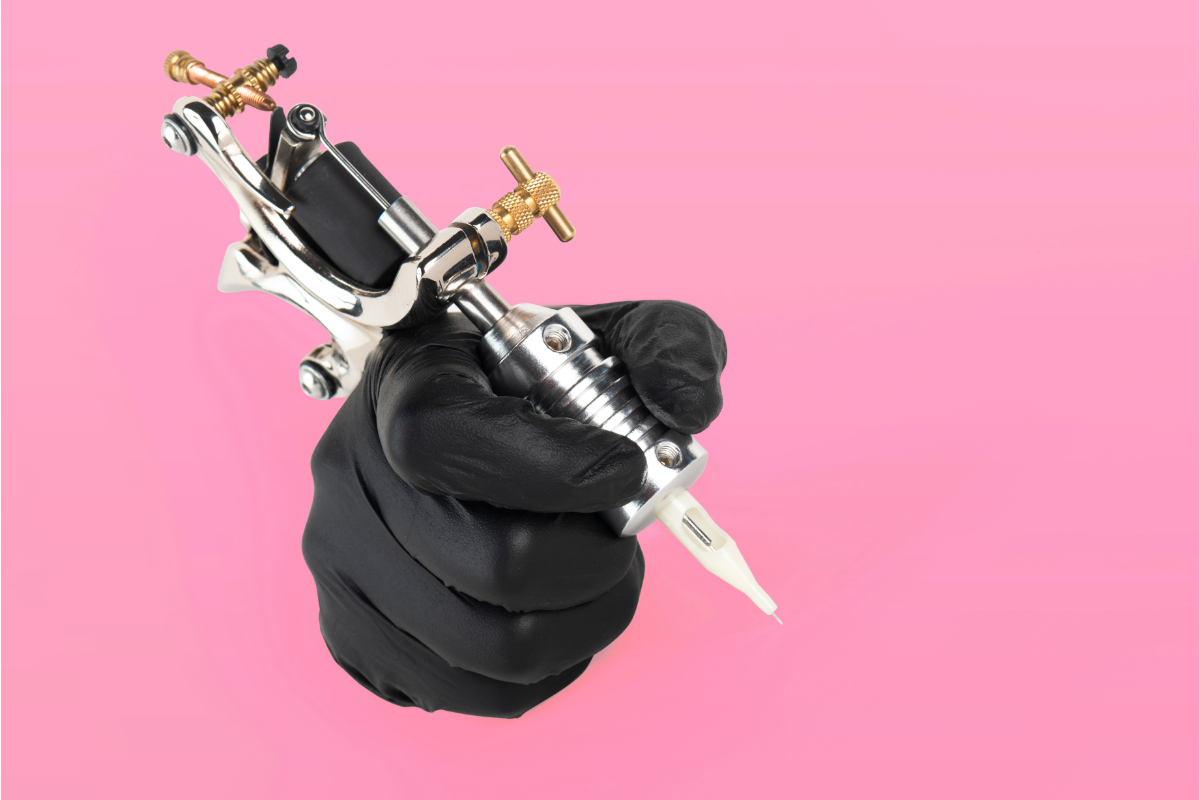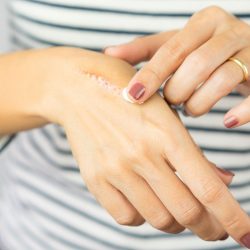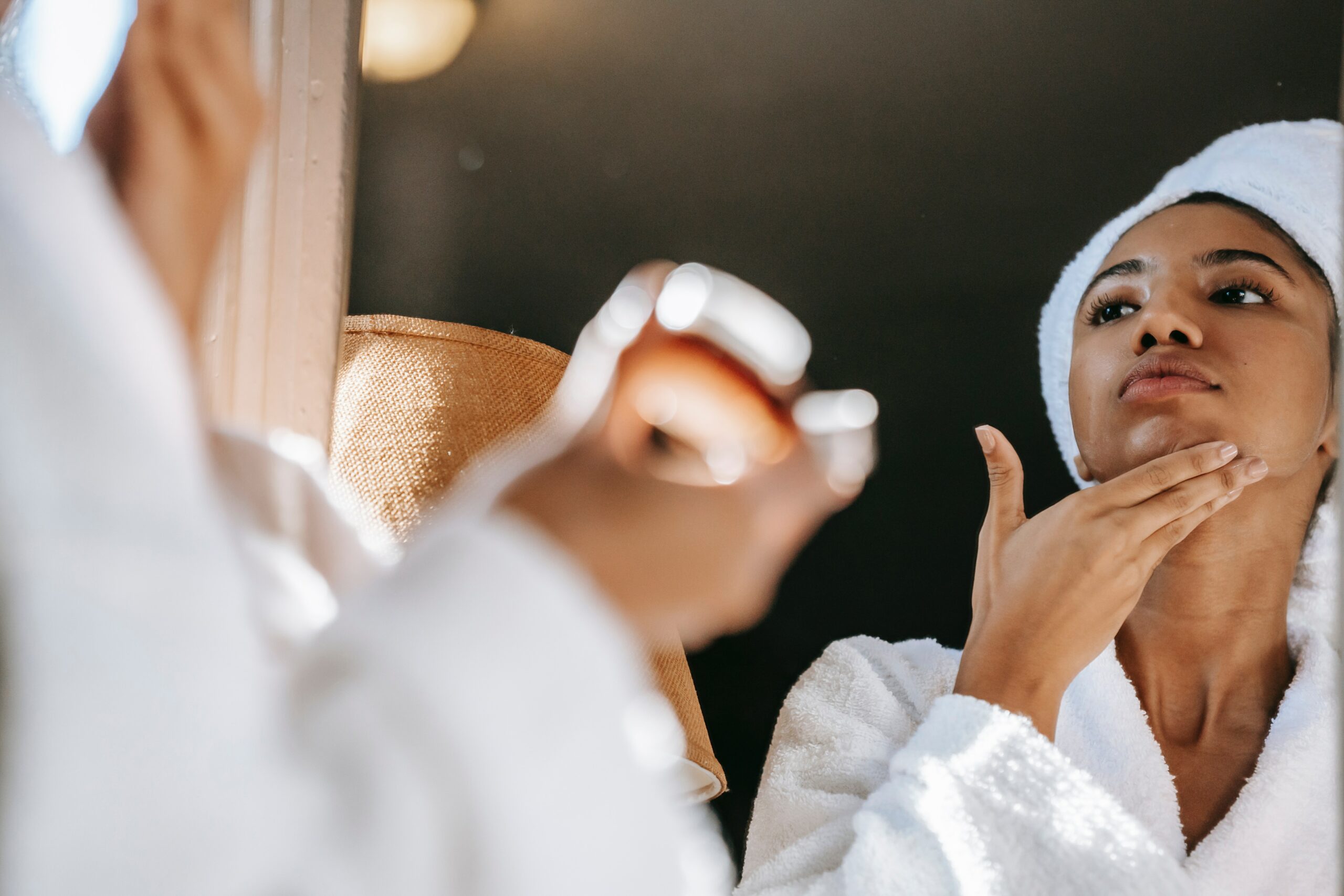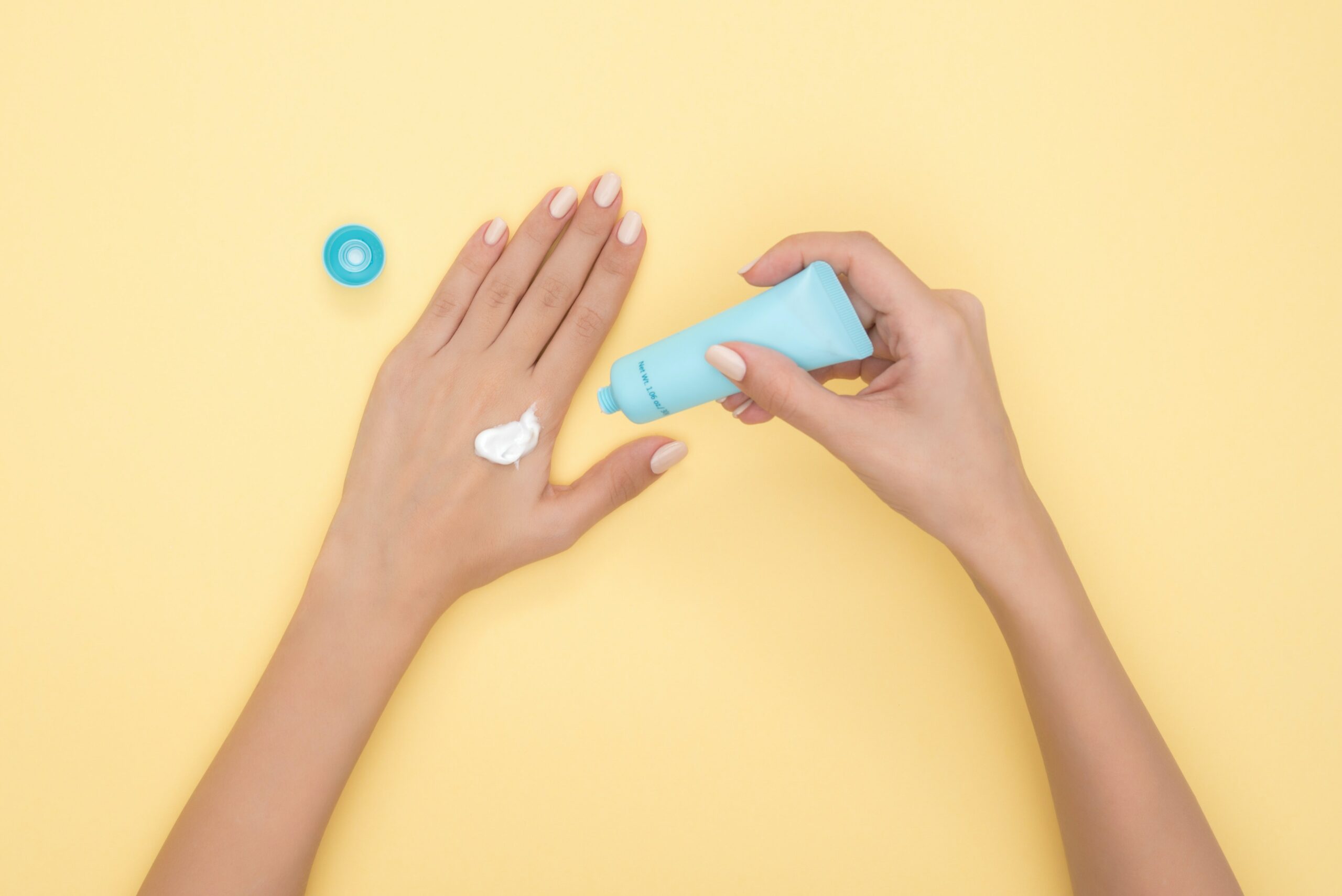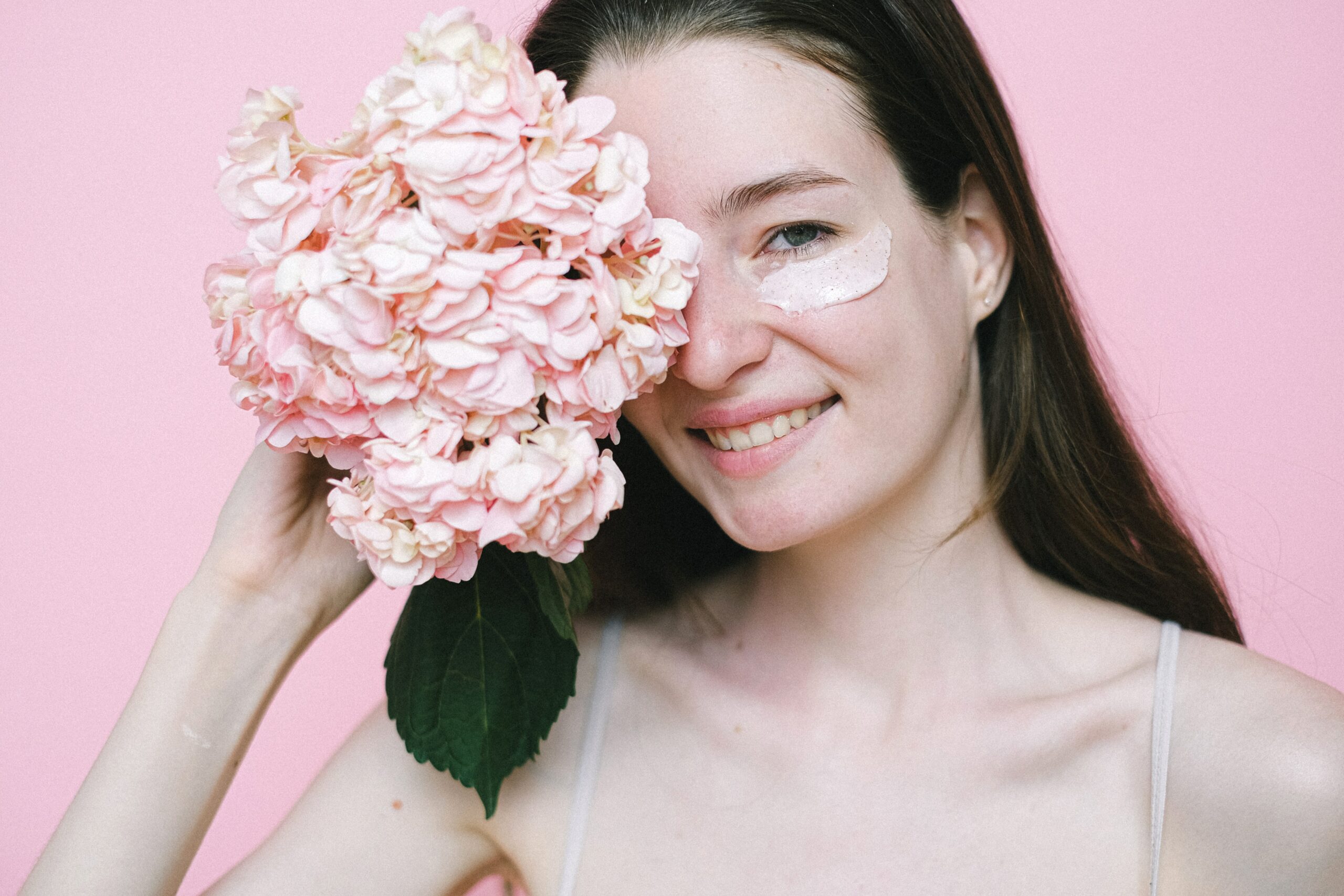These days, more and more young people are succumbing to the tattoo craze. But tattooing is not a trivial act. Significant events, aesthetic needs, lifestyle… The reasons for this choice are very diverse and justified, from a strictly subjective point of view.
As well as leaving a lifelong mark on the skin, tattoos require special care. In particular, care must be taken after the tattoo has been applied to optimise healing. Your online pharmacy has some advice on how to look after your tattoo and make it last.
Preparing the skin before getting a tattoo
Preparing your skin before getting a tattoo is essential to guarantee the best possible result. Healthy, well-maintained skin is more receptive to ink and facilitates the healing process.
Start by moisturising your skin regularly in the weeks leading up to your appointment. Moisturised skin is more elastic and less likely to bleed, allowing the ink to penetrate better. Use a fragrance-free moisturiser to avoid irritation.
It is also advisable to avoid sun exposure on the area to be tattooed. Sunburn or tanned skin can affect the quality of the tattoo and increase the risk of irritation. If you must expose yourself to the sun, use a high protection factor sunscreen.
Finally, make sure that the area of skin where the tattoo will be placed is clean and free from cuts or irritation. Avoid scrubs or aggressive treatments on this area before tattooing. Healthy skin ensures better anchorage of the ink and faster healing.
By following these tips, you’ll not only get a better-quality tattoo, but also a safer, more comfortable experience.
Immediately after tattooing
The period immediately after receiving a tattoo is critical to its healing and longevity. Once the artist has finished, he or she will usually cover the tattooed area with plastic film or a bandage. This protection should remain in place for a few hours, depending on your tattooist’s recommendations. It protects the tattoo from bacteria and direct contact with substances that can irritate it.
Once this period has elapsed, it is important to gently wash the tattoo. Use lukewarm water and a mild soap, preferably antibacterial, to clean the area. Avoid using sponges or rough cloths; your clean hands will do the trick. Gently pat the area dry, without rubbing.
In the days that follow, it is normal for the tattoo to ooze a little or form scabs. It’s crucial not to scratch or tear them off, as this could damage the design and affect healing. Instead, keep the area clean and follow your tattooist’s care instructions.
Recommended products
Applying a suitable ointment or moisturiser is essential to help your tattoo heal properly. There are products specially designed for tattoo care, often recommended by professionals. These products are formulated to soothe, moisturise and promote healing, while preventing clogged pores.
A fragrance-free moisturising cream or ointment is often recommended, as it reduces the risk of irritation. Apply a thin layer to the tattoo several times a day, making sure the skin absorbs it completely. Avoid creams that are too greasy or heavy, which could suffocate the skin.
It’s also advisable to avoid products containing alcohol or irritants. These ingredients can dry out the skin and hinder healing. Similarly, Vaseline-based products are not recommended as they can cause discolouration of the tattoo.
By following this advice and using the right products, you’ll help your tattoo to heal as well as possible, preserving its beauty and clarity for years to come.
Tattoo Derm 1 by Biocyte: The ideal after-tattoo cream
When you’ve just embellished your skin with a tattoo, giving it the right care is essential for optimal healing and preserving the work of art on your body. Biocyte’s Tattoo Derm 1 cream is the ideal solution, developed specifically for post-tattoo care.
Developed in France and packaged in a 100ml bottle, this cream combines a selection of natural, effective ingredients to care for tattooed skin. Tamanu oil, sourced directly from Polynesia, is one of the key ingredients in this formula. Renowned for its repairing properties, it is traditionally used in Polynesian tattoo rituals. Its inclusion in Tattoo Derm 1 provides tattooed skin with deep hydration and aids healing.
Enriched with Aloe Vera and sunflower seed oil, Tattoo Derm 1 cream provides intense hydration while soothing the skin. Aloe Vera, known for its soothing and repairing properties, is ideal for calming the feelings of tightness often experienced after a tattoo. Sunflower seed oil helps to nourish and protect the skin.
Shea butter, another key ingredient, is famous for its protective and moisturising properties. Nicknamed “white gold” in Africa, it offers natural protection against external aggressions and helps maintain the skin’s elasticity.
Tattoo Derm 1 is easy to use and fits into your daily routine. After gently cleansing the tattooed area with lukewarm water and drying the skin, apply a thin layer of the cream, massaging gently into the skin. This should be repeated up to four times a day for ten days to ensure continuous hydration. It is crucial to apply a thin layer to allow the skin to breathe properly.
Tattoo Derm 1 is also packed with other beneficial ingredients such as allantoin, hyaluronic acid and lavender essential oil, each of which plays a key role in repairing and protecting tattooed skin. These ingredients work in synergy to provide a complete skincare experience, ensuring rapid and effective healing, while preserving the radiance and clarity of the tattoo.
The first week after your tattoo session
The first week after receiving a tattoo is a delicate time, when proper care is essential to ensure proper healing. It’s important to clean the tattoo regularly to prevent infection. Twice or three times a day, gently wash the tattooed area with lukewarm water and a mild soap, preferably antibacterial. Avoid harsh or scented products that can irritate the skin.
After each cleaning, adequate moisturising is crucial. Apply a thin layer of moisturiser or ointment specifically for tattoos. These products are formulated to soothe the skin and promote healthy healing, without clogging pores. Be careful not to saturate the tattoo with cream; a small amount is enough to keep the area moisturised.
What to avoid
During this first week, certain precautions should be taken to ensure optimal healing. Firstly, avoid submerging the tattoo in water. This means no long baths, swimming pools, jacuzzis or swimming in the sea. Prolonged exposure to water can affect the ink and pave the way for infection.
It is also advisable to avoid direct exposure to the sun. UV rays can not only cause pain in the freshly tattooed area, but can also accelerate the fading of the tattoo. If you must go out, cover the tattoo with clothing or use a suitable sunscreen.
It is important not to scratch or rub the tattoo, even if it itches, as this is a normal reaction to the healing process. Scratching can damage the skin and alter the appearance of the tattoo. If the itching is intense, apply a thin layer of moisturiser or gently tap the area with the palm of your hand to soothe the sensation.
By following these cleaning and moisturising instructions and avoiding certain actions, you’ll help your tattoo to heal properly, while preserving the quality and beauty of your work of body art.
Good practice for enhanced tattoos
A recent tattoo is a fragile wound. You need to take good care of it to avoid any risk of infection. It’s also important to remain cautious and follow all your tattooist’s care instructions until the wound has completely healed.
Once the work is complete, the tattooist cleans the tattoo and applies a cellophane bandage. It is advisable to change the dressing before going to bed. It is possible that some of the ink has run off or that there are traces of blood. To do this, clean the tattoo carefully with warm water and a pH-neutral soap. Then dry the area by gently dabbing a clean towel over the tattooed surface.
Healing can take from 3 weeks to 3 months, depending on the size of the illustration. It is therefore advisable to continue treatment for the first 3 weeks.
Tattooing and exposure to the sun
The quality of the tattoo depends not only on the skill of the tattooist but also on the quality of the healing process. For the first three weeks, the tattoo is considered an open wound. So any exposure to the sun irrevocably alters the healing process. Tattooed skin is more sensitive to UV rays. In the event of sunburn, the skin is severely attacked and dehydrated. So remember to moisturise your skin with Tattoo Derm moisturiser to restore its suppleness and improve the definition of your tattoos.
After healing, you’ll need to continue protecting your skin from the sun’s rays, as UV rays cause oxidation of the skin, which will have a negative effect on the appearance of your tattoo.
That’s why it’s essential to use a suncare product with an SPF 50 factor every time you’re exposed to the sun, whatever your phototype. When you get back from a bath, apply a generous amount to the tattooed area and don’t hesitate to reapply to maintain the protection.
How do I choose the right sun cream for a recent tattoo?
When you have a recent tattoo, it’s vital to protect the tattooed area from the sun’s rays to avoid damaging the skin and preserve the quality and radiance of the colours. To choose the right sun cream, it’s important to consider a number of criteria. Firstly, you should choose a sun cream with a high sun protection factor (SP F), at least 30, but ideally 50. The higher the factor, the more effective the sun cream is at protecting the skin from UVA and UVB rays.
Next, make sure the sun cream offers broad-spectrum protection. This means that it protects against both UVA rays, which are responsible for premature skin ageing, and UVB rays, which cause sunburn. Finally, it’s essential to choose a water-resistant sun cream to maintain protection when you’re in the water or sweating. This guarantees constant protection, even during water activities or when perspiring.
Common mistakes to avoid when caring for tattoos
- Not cleaning properly. Cleaning is the first step in caring for your tattoo. If you don’t clean your tattoo properly, you risk developing infections and scarring.
- Not moisturising enough. Proper hydration is essential for your tattoo to heal. If you don’t moisturise enough, your tattoo can become dry and lose its colour.
- Exposing it to sunlight. Exposure to the sun can cause permanent damage to your tattoo. Avoid sun exposure for the first two weeks after your tattoo.
- Scratching or rubbing. Scratching or rubbing your tattoo can cause permanent damage. Avoid activities that could rub or scratch your tattoo, such as sports or swimming.
Long-term care for your tattoos
To look after your tattoos over the long term, it’s important to avoid scratching or rubbing them. Also avoid activities that could damage your tattoo, to maintain its original appearance. In addition to this, regular moisturising of your tattoo is essential to keep it shiny and healthy. You should also avoid exposure to the sun, especially for the first two weeks after your tattoo, and use a sunscreen with a high SPF if you have to go out.
It’s also advisable to avoid using harsh chemicals on your tattoo, as this could cause permanent damage. Finally, it’s important to follow your tattooist’s instructions carefully to ensure the long-term health and beauty of your tattoo.
FAQ
- Do tattoos heal quickly?
No, they can take several weeks to heal completely.
- Can I swim after I’ve been tattooed?
It is recommended that you avoid swimming for the first two weeks after your session.
- What moisturiser should I use for my tattoo?
Use a fragrance-free moisturiser to help heal your skin.
- Can tattoos cause infections?
Tattoos can cause infections if they are not properly cleaned and protected.
- How long does a tattoo last?
The length of time depends on many factors, but in general, a tattoo can last for years with proper care.

